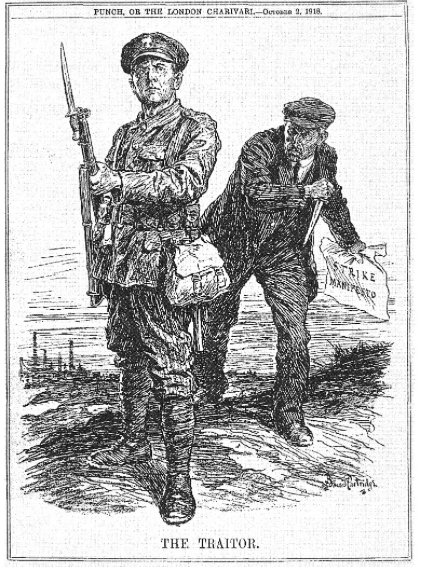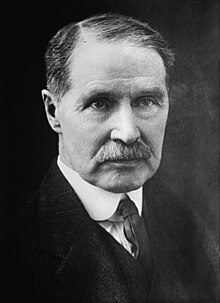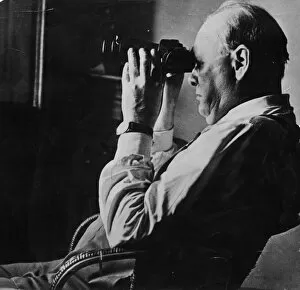You are using an out of date browser. It may not display this or other websites correctly.
You should upgrade or use an alternative browser.
You should upgrade or use an alternative browser.
The German Century
- Thread starter Joriz Castillo
- Start date
- Status
- Not open for further replies.
This is interesting I feel like this is setting up a harder great depression. Interested to see how the US''s defense programs differ than in OTL will the Navy Second to None actually be implemented I don't see the US accepting parity when its Germany as the other Naval Power on the Eastern Side of the Atlantic. At the same time the 1920's may not be as roaring as I don't see Red France or a defeated Britain repaying its war debt willingly.
Whooo boy, a Dem roaring twenties we'll see  We all know what that will mean.
We all know what that will mean.
I assume that because of war weariness being directed against the republicans, Cox will be more isolationist as President?
I assume that because of war weariness being directed against the republicans, Cox will be more isolationist as President?
A question indeed: what of the money? Since the war dragged on longer than OTL, Britain is even more indebted. Red France won't hand over a single penny and the government-in-exile needs all the funds it can get to simply keep running -no relief to be found from that direction either.
But it gets worse: OTL right around this time Australia and New Zealand began making noise about a proper fleet stationed in the area -they were less than fond of their new neighbors. With the High Seas Fleet scuttled, London could simply transfer over units from the home waters and that served to mostly remedy the issue.
Here, the HSF remains a fleet-in-being -and is in fact likely to grow in size and power with Germany's new overseas commitments. Yet the Dominions will still want that navy, if not quite as urgently.
Where is the money for all that needs doing going to come from?
But it gets worse: OTL right around this time Australia and New Zealand began making noise about a proper fleet stationed in the area -they were less than fond of their new neighbors. With the High Seas Fleet scuttled, London could simply transfer over units from the home waters and that served to mostly remedy the issue.
Here, the HSF remains a fleet-in-being -and is in fact likely to grow in size and power with Germany's new overseas commitments. Yet the Dominions will still want that navy, if not quite as urgently.
Where is the money for all that needs doing going to come from?
This is interesting I feel like this is setting up a harder great depression
France unable to Pay it's loads banks to US Banks
And Britain having simelar problem
Will let to Hell of a Great Depression (earlier ?)
I wonder how Roosevelt Vice presidency is affected by his poliomyelitis in 1921
I'm curious how the idea of autarky would be affected.France unable to Pay it's loads banks to US Banks
And Britain having simelar problem
Will let to Hell of a Great Depression (earlier ?)
I wonder how Roosevelt Vice presidency is affected by his poliomyelitis in 1921
France unable to Pay it's loads banks to US Banks
And Britain having simelar problem
Will let to Hell of a Great Depression (earlier ?)
I wonder how Roosevelt Vice presidency is affected by his poliomyelitis in 1921
Forces him to resign due to health reasons maybe, could be butterflied away
They could use Military spending to bluster the economy.
I don't think they would have financial issues nearly as bad as OTL, where they basically sabotaged themselves. So, since the debts would likely be internal, the government might just be fine. Especially after the Entente so kindly isolated Germany from their own now crashing economies.Germany's economy could improve or it will also fall into a depression, here they do not have to pay external debts only internal ones, it is possible that a change will occur to avoid the depression or it will always happen but only in a different way.
The Germans will have the wealth of their new colonies and the eastern puppets to cushion themselves, so I feel that they'll end up like the US or UK from OTL.I don't think they would have financial issues nearly as bad as OTL, where they basically sabotaged themselves. So, since the debts would likely be internal, the government might just be fine. Especially after the Entente so kindly isolated Germany from their own now crashing economies.
I couldn't find much info about what would happen. Can you please elaborate?Whooo boy, a Dem roaring twenties we'll seeWe all know what that will mean.
In OTL until after the US joined the war, all Entente War Debts were secured with collateral. Read up some threads about "WI the US stays neutral in WW1" those discuss the matter at length.A question indeed: what of the money? Since the war dragged on longer than OTL, Britain is even more indebted. Red France won't hand over a single penny and the government-in-exile needs all the funds it can get to simply keep running -no relief to be found from that direction either.
So one way or the other the U.S . wont face a banking collapse. IMHO Britain will find some way to pay even if it means selling colonies, because a default and the U.S. confiscating collateral will be widely seen as the British Empire being about to collapse.
In OTL until after the US joined the war, all Entente War Debts were secured with collateral. Read up some threads about "WI the US stays neutral in WW1" those discuss the matter at length.
So one way or the other the U.S . wont face a banking collapse. IMHO Britain will find some way to pay even if it means selling colonies, because a default and the U.S. confiscating collateral will be widely seen as the British Empire being about to collapse.
There is not many countries whom UK could or want sell colonies. Perhaps it could give some Caribbean islands to USA to pay its debts.
There is not many countries whom UK could or want sell colonies. Perhaps it could give some Caribbean islands to USA to pay its debts.
In OTL, President Hoover inquired about buying Bermuda, British Honduras (i.e. Belize), and Trinidad so the British could pay back war debts. Those would be likely to be sold during this era.
Hoover also intended to let Mexico and Guatemala carve up British Honduras to foster good relations with both nations. I wonder if Congress would allow that after a purchase now that it would be American.
Last edited:
In OTL, President Hoover inquired about buying Bermuda, British Honduras (i.e. Belize), and Trinidad so the British could pay back war debts. Those would be likely to be sold during this era.
Hoover also intended to let Mexico and Guatemala carve up British Honduras to foster good relations with both nations. I wonder if Congress would allow that after a purchase now that it would be American.
Surely ITTL Americans are not going give Mexico any shit.
A Posh Hangover
A Posh Hangover
The United Kingdom was in a peculiar position. Despite being largely unscathed from the war, it was the most worn-out country in the Entente. Despite having the largest empire in the world with all of its resources, it was drowning in a sea of debt. During the war, the British hoped to use their allied countries’ money to pay off all the loans it borrowed from the US. But with the defeat of Italy and the fall of both France and Russia to communism, it became clear that wasn’t going to happen. It was time to look for different ways.
Even though the war ended, that didn’t mean the fighting was still over. Ireland was in an open insurgency, while a revolution in Egypt had forced the government to send troops to those places to restore order. Not to mention, the masses of returning troops coming home bitter from the war. The Britain they returned in 1919 was vastly different from 1914. Women had taken the place of men in the factories and there weren’t a lot of jobs to go around. As a result, mass unemployment became a huge issue coupled with the rising discontent among the unions. The political left blamed the defeat on the establishment that brought the country into war in the first place, while the political right blamed the socialists and trade unions for 'propagating defeatism' while victory was in sight. In simpler terms, they were stabbed in the back by a variety of scapegoats; Marxists, trade unionists, the Irish, the French, Jews, etc.

A British soldier about to be stabbed in the back by a railroad worker, 1918
After having won a general election a few months after the armistice, the Conservatives, in coalition with the National Party, under PM Bonar Law went to work. The troops were demobilized and the economy was transitioning back into a civilian one. What had once been churning out tanks, shells, and weapons was now switching back into the production of civilian goods. This came with the inevitable headaches as the production had to be switched.

Bonar Law
Prime Minister 1919-1923
On trade, the British government set up trade tariffs and embarked on a policy known as ‘Imperial Preference’. This meant trading less with Europe and trading more with its Empire, including the dominions. Wool from Australia, butter from New Zealand, steel from Canada, tea from India, cotton from the Americas, sugar from the Caribbean, gold from South Africa, and other stuff became the main imports into the UK.

An 'Imperial Preference' Poster
On the domestic side, the situation could only be described as ‘utter chaos’. In Glasgow & Edinburgh, sailors and soldiers had mutinied and set up a Bolshevik-style council. They took control of the entire of both cities and had proclaimed a ‘Scottish Soviet Republic’. Over the next few days, armories were raided and hundreds of workers were now armed to the teeth. To deal with this, Home Secretary Winston Churchill sent in a unit of Black and Tans into the cities. Once they were deployed, it took 20 days for the Black and Tans to retake the cities despite the help of loyal army units, artillery, and tanks. Churchill had even traveled to Glasgow to take a close look at the action unfolding in the city. Once the fighting had ended, some of them committed summary executions killings on anyone that had fired at them. This radicalized the socialists even further as they started harboring distrust of the authorities. Churchill, in particular, would earn the nickname 'The Glasgow Butcher'.

Winston Churchill observes the fighting in Glasgow through his binoculars, 1920

A street in Glasgow after the uprising was crushed, 1920
On Finance, the Treasury wasn’t looking good. All of the country's debt was being repaid with collateral and the government was running out of money. Left with no choice, the government decided to default on its loans. This prompted the US to seize all British assets in America. To make for this, the government embarked on strict austerity measures. This meant lowering spending and raising taxes. This didn't fit well with the populace who were already living through hard times. Another way of increasing revenue was one idea nobody thought possible. The UK would try selling some of its colonies to help raise some money.
There was only one potential buyer: America. In 1922, Bonar Law met with President James Cox to discuss a possible deal. The Americans had always had a desire to expand their new 'empire' as a special form of Manifest Destiny. The territories in negotiation were Bermuda, the British Virgin Islands, the Turks and Caicos, and the Bahamas. Later in the year, the so-called 'West Indies Purchase' was finalized for a hefty price tag of 500 million dollars (7.4 billion in 2020 dollars) and ratified by both countries. Throughout 1924, Bermuda, the BVI, and the Turks and Caicos Islands were transferred over to the United States. In 1925, the Bahamas was the last to be transferred to US control. By then, events in India would spiral out of control that would have drastic consequences in Britain.

A handover ceremony in Bermuda, 1924
Smart of Britain to raise money that way.
Maybe Japan would like Hong Kong? (they always have Singapore to hold their Asiatic fleet)
Maybe Japan would like Hong Kong? (they always have Singapore to hold their Asiatic fleet)
Smart of Britain to raise money that way.
Maybe Japan would like Hong Kong? (they always have Singapore to hold their Asiatic fleet)
And not so smart shoot protesting people. Hopefully Brits have now learn something.
Hong Kong is not for sale.Smart of Britain to raise money that way.
Maybe Japan would like Hong Kong? (they always have Singapore to hold their Asiatic fleet)
Smart of Britain to raise money that way.
Maybe Japan would like Hong Kong? (they always have Singapore to hold their Asiatic fleet)
Hong Kong seems too valuable to sell off.
Britain might be able to pawn off some Pacific island groups like Kiribati, Tuvalu, or Tokelau to Japan, considering they are not very economically or militarily useful to the Empire. Assuming the USA doesn't take issue with expanded Japanese holdings, though.
In TTL, didn't Japan have to give back German Micronesia? This could make make up for failure to gain them and keep Anglo-Japanese relations strong.
Last edited:
- Status
- Not open for further replies.
Share: